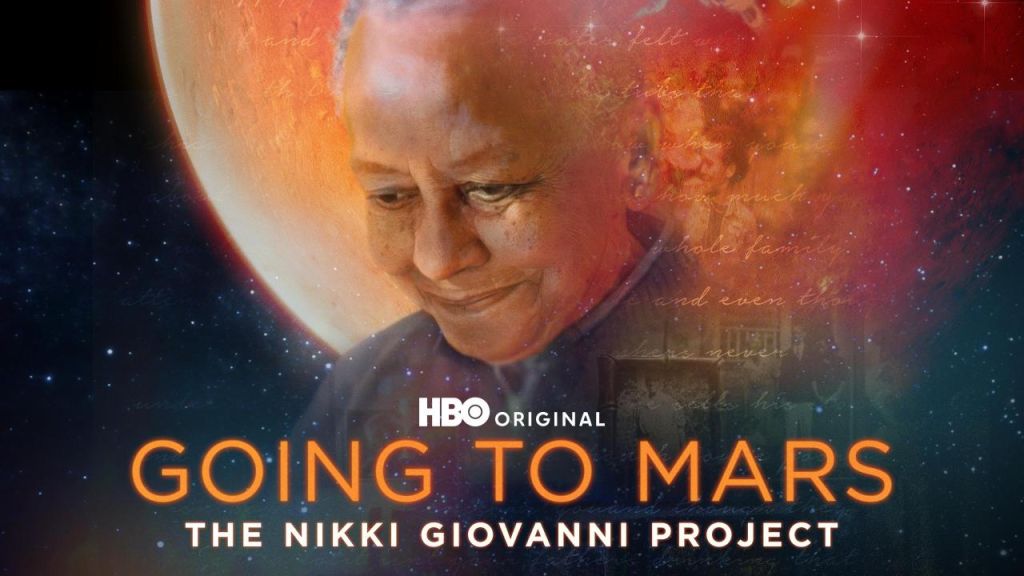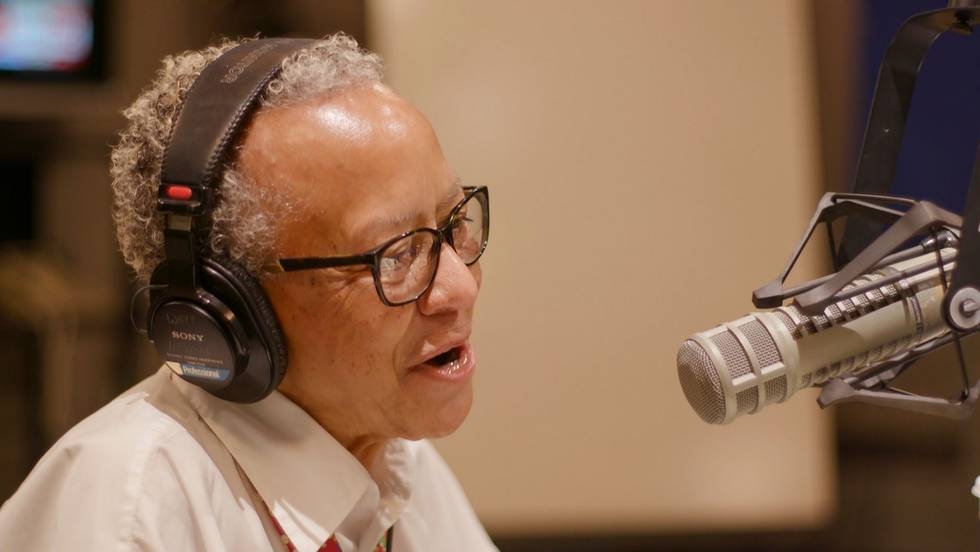
Source: HBO / HBO
Nikki Giovanni inspired generations of Black women to dream, love, and fight without losing herself. The writer who inspired the documentary Going To Mars: The Nikki Giovanni Project has been a Black intellectual icon for most of her life. She started out balancing her studies and her day job with her art before finding a way to do it full-time.
Nothing diminishes her impact because it has afforded her a good living. Her success has made her even more inspirational to those coming up behind her. The film displays the hope she has infused into them. Giovanni proves you can dedicate yourself to your art and retain your humanity.
As corporate America backpedals on its DEI commitments, turning countless hours of work into a snarky slur, the project is a reminder to Black women to save some of themselves for themselves. Learning from the sublime example of her Afrofuturist-feminist philosophy is the perfect way to end Women’s History Month.
Going to Mars: Back To The Beginning
Co-directors and writers Joe Brewster and Michèle Stephenson tell the story of Giovanni’s professional and personal lives with love and honesty in the documentary. The film won the Grand Jury Prize in the Sundance U.S. Documentary Competition. It explores the legacy of the Tennessee native’s work. It also highlights how she was able to create it. There is a scene where Giovanni plainly states that after dedicating herself to the cause of Black equality for free for years, she no longer has that luxury. Before that scene, we see what she contributed to the Black liberation movement for free. We see the emotional and practical labor she poured into her people.
Giovanni marched in the streets. She babysat with a shotgun to protect the children of activists. She answered letters. Her work supported civil rights icons. She became one, protesting the world’s cruelty with beautiful passages inspired to provoke.
At one point, she says, “I honestly think that the most important word to me is duty.” But duty has limits—and it should.
Family First
When she became a mother, changing the way she moved in the world was essential. Giovanni unabashedly explains that she was responsible for another human being and, therefore, more invested in her financial life than she was as a single artist without a baby boy in tow.
Black women who put themselves and their families first financially are often criticized by their community. They are expected to do it for the culture no matter what the cost. But is that a fair expectation?
The beloved writer risked her safety to inspire us. She offered us her dreams and her pain. She deserved to be compensated. The film touches on what grounded it in reality. It presented a person, not a saint.
Perhaps we need more of that.
Black Artists Deserve Boundaries
Standing in the wake of Giovanni’s immense impact is a generation of writers who have struggled to make ends meet while sharing their perspectives and pain with the world.
In a world where we appear to have more expectations of the women who inform and entertain us through screens than our family members, Giovanni’s resolve to remain authentic is even more impressive. She is a dreamer, but to bring those dreams to life, she must engage with her reality. “I remember what’s important, and I make up the rest. That’s what storytelling’s all about,” she said.
Giovanni reflects on the importance of boundaries for artists in her attitude. A scene features a talk where the writer addresses her fans with respect and care, but she does not tap dance for them. She exudes the same poise and presence throughout. Parts of her life, including speculations about her romantic life, are off-limits. There are moments when she resolutely refuses to answer a question.

Source: Photograph by Courtesy Rada Studio/HBO / Photograph by Courtesy Rada Studio/HBO
She addresses “card-carrying members of the Nikki Giovanni fan club” from the stage of the Apollo Theater. She participates in social activities but pauses to take a call, prioritizing the relationships in her life that matter to her most. Giovanni shifts the focus in a manner that is not rude but mindful.
People lined up to greet Giovanni. They presented her with babies named after her. One woman recalled how she encouraged her to stay in college, revealing that she became a teacher in an underprivileged community after receiving that jolt of motivation.
In Going To Mars, the camera follows her enduring medical issues and mending family fences. It does not hint at her ailments. It lays them bare as part of her life. She is no less interested in displaying her frailty and faults. She is more powerful in her humanity. To maintain her personhood, she has to prioritize herself, and that’s okay. “I’m polite, but I’m not friendly,” she chirps unapologetically.
Envisioning A Better Future
Giovanni acknowledged the value of Black women’s labor in her poem Going To Mars. The beautiful work is embedded throughout the film. It projects a vision of a society where we contribute even more, and everyone reaps the benefits equally. But that’s not the world we live in.
As Giovanni declared in her poem, “Mars doesn’t deserve Black women, but we’re going anyway.” Earth doesn’t deserve Giovanni, and I don’t blame her for giving us what she wants.
Going To Mars: The Nikki Giovanni Project is now streaming on Max.
DON’T MISS:
‘Donyale Luna: Supermodel’ Shows Grace To Black Girls Forced To Choose Survival Over Solidarity
Natasha S. Alford Leaves No Black Girl Behind in ‘American Negra’
Alfordione_media_gallery id=”4142168″ overlay=”true”]
Here’s Why You Should Watch The Nikki Giovanni Documentary ‘Going To Mars’ Before The End Of Women’s History Month
was originally published on
hellobeautiful.com

